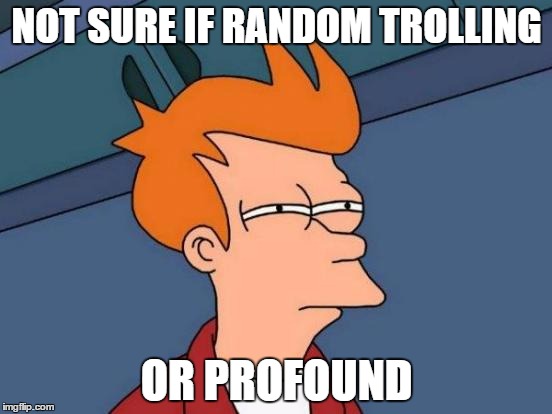Religion is fantastic. Just look at this crap (even searchable on Wikipedia):
Christianity
Seven Heavenly Virtues
Ten Commandments
Buddhism
Eightfold Path
Jainism
Of course I'm likely just stating the obvious, but I'm always amazed at how closely many religions point to the human psyche. Of course morality and values change over time, but one could look at the logic that's arisen over and over again in different religions and write a pretty damn good guide to success in life.
Christianity
Seven Heavenly Virtues
- Chastity
- Temperance
- Charity
- Diligence
- Patience
- Kindness
- Humility
Ten Commandments
- Honour thy father and mother
- Thou shalt not kill
- Thou shalt not commit adultery
- Thou shalt not steal
- Thou shalt not covet...
Buddhism
Eightfold Path
- Right view
- Right intention
- Right speech
- Right action
- Right livelihood
- Right effort
- Right mindfulness
- Right concentration
Jainism
- Non-violence
- Non-absolutism
- Non-possessiveness
Of course I'm likely just stating the obvious, but I'm always amazed at how closely many religions point to the human psyche. Of course morality and values change over time, but one could look at the logic that's arisen over and over again in different religions and write a pretty damn good guide to success in life.

